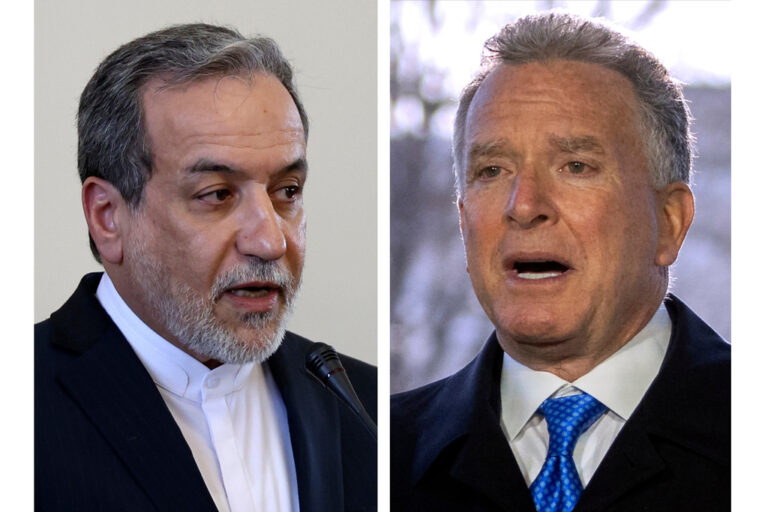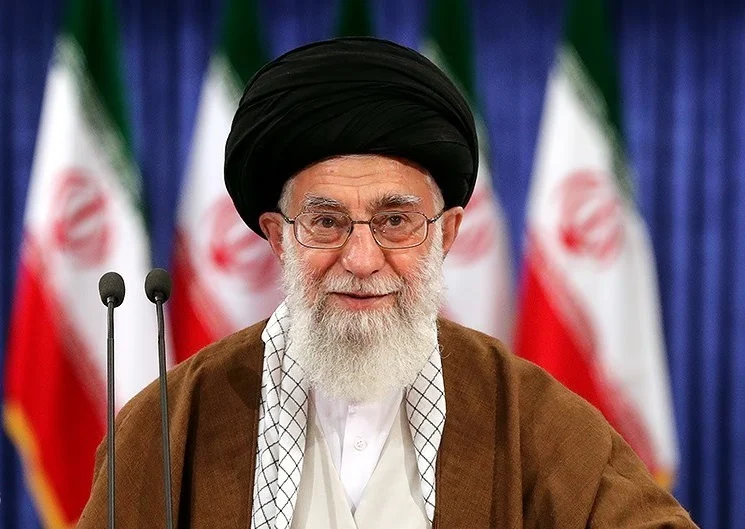Vayar Yisroel es b’nei Yosef vayomer mi Eileh vayomer Yosef el aviv banai heim asher nasan li Elokim ba’zeh (48:8-9)
Rashi writes that although Yaakov initially intended to bless Yosef’s sons Ephraim and Menashe, he grew hesitant when he became aware that they would have wicked descendants. Yosef attempted to reassure Yaakov by showing him proof that he had married their mother according to Jewish law and they were his legitimate children. Although it was commendable that Yosef had been committed to properly marrying his wife even in the midst of the immoral Egyptians, how did this assuage Yaakov’s concern that their offspring would include evil men?
The Torah L’Daas (Vol. 1) offers a clever explanation based on the answer to a well-known question. A ben sorer u’moreh (wayward son) is put to death at a young age for the relatively minor crimes of disobeying his parents, stealing from them, and overeating. Rashi explains (Devorim 21:18) that he is killed “al shem sofo” – although his present actions don’t justify the death penalty, because they reveal that he is headed down a path that will lead that way, it is preferable for him to die now while he is still relatively innocent.
On the other hand, when Yishmael was sick in the desert and Hashem wished to miraculously create a well to heal him, the Heavenly angels challenged why He would help somebody whose descendants would later kill the Jewish people. Hashem answered that He only judges people “ba’asher hu sham” – based on their actions at the present moment without taking into account what will happen in the future. If so, why is the wayward son punished based on his future actions?
The Maharsha answers that the mother of the ben sorer u’moreh was a beautiful non-Jewish woman who was captured during war (Rashi Devorim 21:11). Even though the Torah permitted marrying her, it was only done as a concession to the yetzer hara (evil inclination) and in a sense, the child is considered to be the product of a sinful relationship. As a result, he is judged more stringently and held accountable for his future actions, as opposed to Yishmael who was born from a permitted relationship.
In light of this distinction, when Yosef saw Yaakov judging Ephraim and Menashe based on the future and refraining from blessing them as a result of their wicked descendants, he demonstrated that they were legitimate children from a proper marriage and therefore should only be judged based on their present (righteous) actions.
Vayar menucha ki tov v’es ha’aretz ki na’eima vayeit shichmo lisbol vayehi l’mas oveid (49:15)
Prior to his death, Yaakov gathered together his 12 sons, who represented the 12 tribes from which all Jews would be descended, and gave each of them a blessing which was uniquely suited for his unique role within the Jewish nation. In blessing Yissochar, whose descendants are traditionally associated with the study of Torah, Yaakov said, “He saw that peaceful serenity is good and that the land was enjoyable, and he bent his shoulder to bear a heavy load.”
Rav Yerucham Levovitz points out an apparent contradiction in the verse. It begins by referring to the comfortable life of tranquility and the pleasant land enjoyed by the tribe of Yissochar, which we can envision with little difficulty. However, just as we begin dreaming about the tropical pleasures that Yissochar must have had, Yaakov continues and describes his life of tranquility as one in which he bent his shoulder to work hard and carry a weighty burden. This hardly matches the mental images we would associate with Yissochar’s lot based on Yaakov’s initial description.
The following story will help us resolve this apparent contradiction. During World War II, all of European Jewry was under attack and in shambles. Even those who managed to hide or escape lived daily with the fear that numerous family members were unaccounted for and may not have been as fortunate. In the midst of all of this unprecedented destruction and uncertainty, the students of the Mir yeshiva stuck together and fled across Russia to Japan, China, and ultimately to freedom in the United States.
During one stage of their flight, they were on a boat which encountered choppy waters. As if they didn’t have enough to worry about regarding the plight of their brethren back in Eastern Europe, many of those on the ship became quite anxious as the boat was tossed and turned, wondering if they would ever reach their intended destination.
Meanwhile, their illustrious Rosh Yeshiva, Rav Chaim Shmuelevitz, was oblivious to the situation around him, completely absorbed in the difficult work Shev Shmaitsa that he was studying. One of the students approached him for comfort, asking “Where are we holding?” As the student was referring to the plight of the boat, he was quite taken aback when Rav Chaim, completely engrossed in his studies, took it as a question about the book and innocently responded, “Shmaitsa Gimmel (Chapter 3).”
Rav Yerucham explains that Yaakov teaches us that the true definition of peace and tranquility is the exact opposite of what people are accustomed to thinking. The American attitude is that true calm and serenity can only be had on a quiet beach, curled up with a good book and a martini, enjoying the backdrop of gentle waves crashing and the sun warming our bodies, with nobody around to disturb us.
While this is indeed a pleasant and enticing mental image, it by definition restricts our inner state and makes it dependent on external factors beyond our control. It implies that if we are unable to be in the situation and circumstances that we would ideally prefer, inner bliss is unfortunately unattainable at that moment. After a bit of reflection, we should realize that this could hardly be the true meaning of inner tranquility and satisfaction.
Our mission in this world is to rise above whatever situations life may throw our way, not to focus outward but inward. If we carry within ourselves an unshakable reserve of inner joy and serenity, we will be able to remain happy and calm throughout life’s journeys and trials, the circumstances of which are all too often beyond our control. By blessing Yissochar and his descendants to carry within themselves the yoke of studying Torah and doing mitzvos, Yaakov was revealing to them – and to us – the key to true simchas ha’chaim (happiness and peace).
Vayehi l’mas oveid (49:15)
The Gemora in Megillah (3a) notes that because the letters in the Tablets were carved out from one side all the way through to the other (Shemos 32:15), it was a miracle that the letters “mem” and “samech” remained in place. All of the other letters were partially connected to the rock around them, but because these two letters were circular, the piece of stone in the middle formed from carving them out was completely unattached and would have fallen out if not for this miracle.
In his blessing to his son Yissochar, who was traditionally known as one of the tribes most dedicated to Torah study, Yaakov said “vayehi l’mas oveid.” It has been a sad fact throughout Jewish history that the institutions and individuals focused on learning and teaching Torah have often found themselves strapped for funds and without any apparent source of assistance. Rav Gedaliah Schorr beautifully suggests that Yaakov specifically referred to Yissochar’s descendants with these two letters to hint that just as these letters inexplicably remained intact even without any support, so too will those who dedicate their lives to the study and teaching of Torah miraculously succeed in their mission.
Answers to the weekly Points to Ponder are now available!
To receive the full version with answers email the author at [email protected].
Parsha Points to Ponder (and sources which discuss them):
1) Rashi writes (47:29) that one of Yaakov’s reasons for not wanting to be buried in Egypt was that those buried outside of the land of Israel are forced to suffer the pain of rolling through tunnels to reach the land of Israel for the resurrection of the dead. If this was his concern, of what benefit was it for him to be buried in Chevron when the Gemora in Kesuvos (111b) teaches that the righteous will need to be rolled to Yerushalayim for the resurrection of the dead? (M’rafsin Igri)
2) Rashi writes (49:5) that Yaakov cursed the plans of Shimon and Levi to kill Yosef even though they never came to fruition. As the Gemora teaches (Kiddushin 40a) that Hashem doesn’t punish a person for evil plans and thoughts unless they actually come to fruition, why did Yaakov hold them accountable for a scheme that even Hashem wouldn’t punish them for? (Sifsei Chochomim)
3) Rav Yehuda HaChossid writes in his will that if a child dies, his parents shouldn’t kiss him, as this can lead to the death of their other children as well. Does this warning apply to other relatives who die as well, and if so, how could Yosef kiss his father Yaakov after he died (50:1)? (Pischei Teshuvah Yoreh Deah 394:1, Ohr HaChaim HaKadosh, Maharil Diskin, Ayeles HaShachar)
4) Rashi writes (50:5) that Yaakov took all of the gold and silver that he earned in the house of Lavan, made it into a pile, and told Eisav to take it in exchange for his burial plot in Me’aras HaMachpeila. Why is Ephron so heavily criticized for charging Avrohom 400 silver pieces in exchange for the entire cave, while no mention is made of Eisav’s greed in taking much more than that for one burial plot? (Shu”t Chasam Sofer Yoreh Deah 329-330, M’rafsin Igri)
© 2010 by Oizer Alport.










